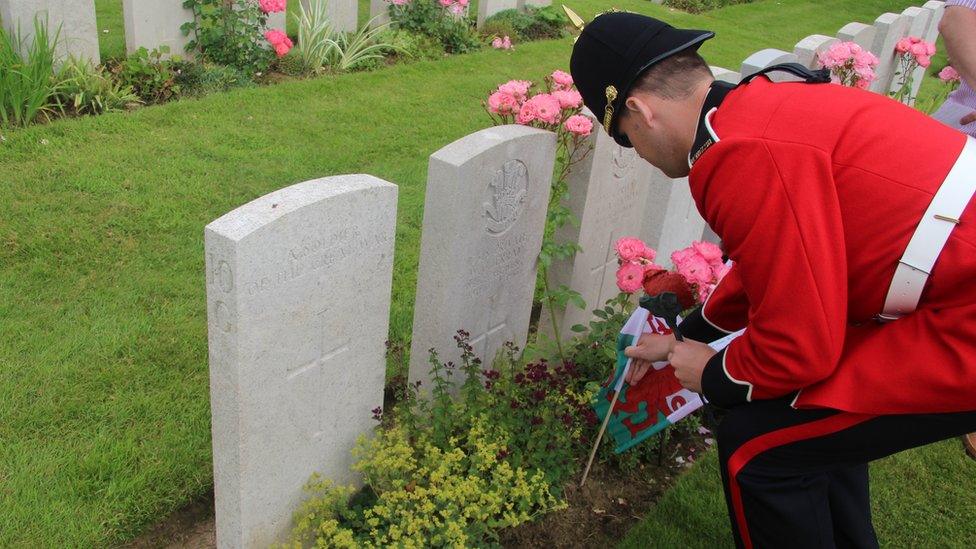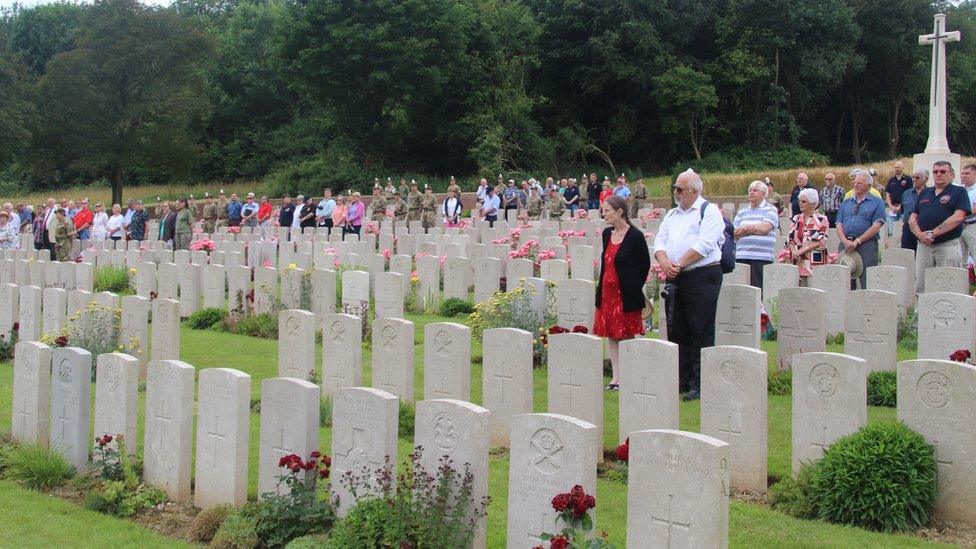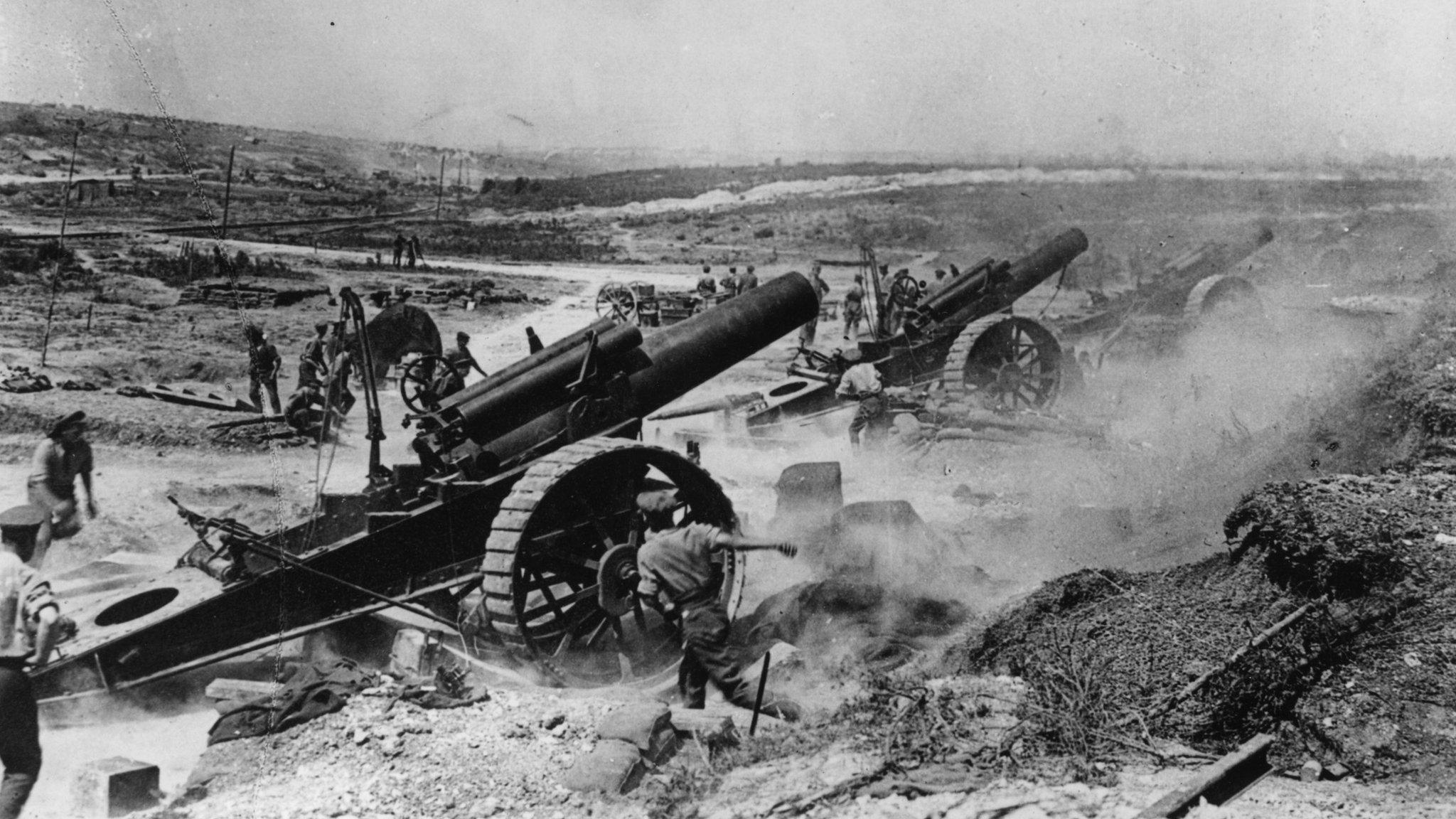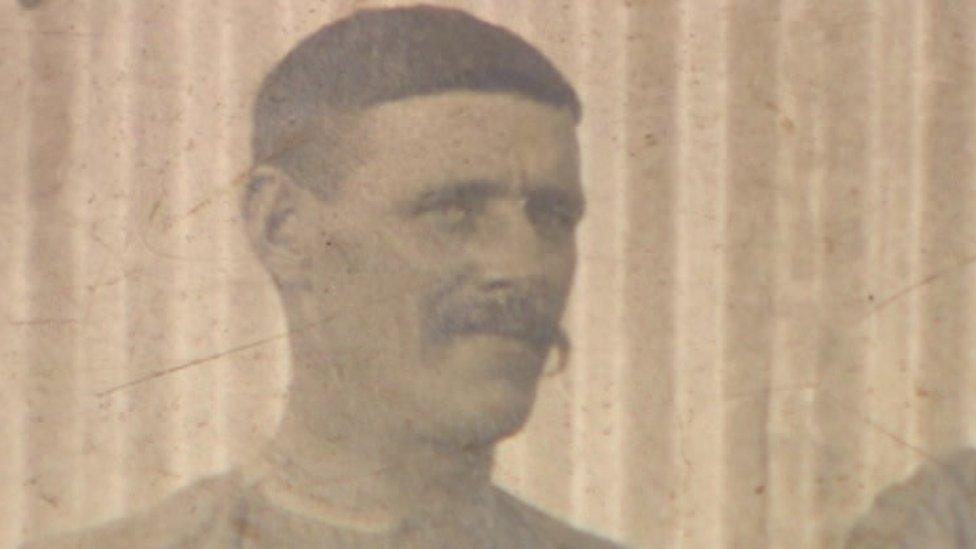Welsh flags placed on Mametz Wood graves during service
- Published

A member of the band of the Royal Welsh lays a flag at the grave of a Welsh soldier at Flatiron Copse cemetery
More than 100 people have attended a service paying homage to Welsh soldiers who died in the battle of Mametz Wood.
The service in Flatiron Copse cemetery was organised by the south Wales branch of the Western Front Association.
The cemetery is located just yards from where 3,993 Welsh soldiers were killed, missing or injured during the five-day battle in World War One.
A Welsh flag and poppy was placed on every Welsh soldier's grave.
The 38th (Welsh) Division attacked Mametz Wood between 7 and 14 July 1916, with more than 4,000 of them killed or injured.
The battalions were drawn from all over Wales and represented north, south, rural and industrial areas, as well as men from the London Welsh.
More than 100 people from Wales attended the commemoration at the cemetery

People pay their respects to the Welsh soldiers who fell at Mametz Wood in Flatiron Copse cemetery
The band of the Royal Welsh also took part in the short service on Friday.
Phil Davies, secretary of the south west branch of the Western Front Association, said the cemetery was a very special place for Wales.
"It is important that what these men did is never forgotten," he said.
The visitors included a number of people who were visiting the graves of family members.
Robert Tedstone from Abercarn laid a wreath on the grave of his ancestor, Thomas Tedstone, who came from Maesycwmmer in Caerphilly county and died on 7 July 1916.
On Thursday, a memorial service took place at the site of the Welsh dragon memorial, facing the wood.
The service was led by Archbishop of Wales Dr Barry Morgan and included an address by First Minister Carwyn Jones.

BBC Wales Today reporter Roger Pinney was at Thursday's ceremony
The old general called it the butchers bill. We would think of it as the human cost of war.
At a centuries distance it's easy to talk of slaughter and sacrifice. But for many of us who attended the centenary service at Mametz Wood one fact will stand out.
It came from Lt Gen Jonathon Riley, one-time commanding officer of the 1st Battalion Royal Welsh Fusiliers.
"Here," he said, "we lost as many of our people in 15 minutes as we did in 15 years in Afghanistan."
For the ceremony we stood in a pretty valley drenched in bright sunshine.
A delightful place. Looking down on us a defiant dragon, the prominent memorial to the men of the 38th (Welsh) Division.
One hundred years ago they gave this same ground in front of Mametz Wood a name. Death Valley they called it.
In five days, 4,000 were killed or wounded here.
The music, the speeches, the hymns made the ceremony an emotional experience.
The First Minister Carwyn Jones summed up the sentiment of many. "We came to remember," he said, "and give thanks."

- Published4 July 2016

- Published5 July 2016

- Published4 July 2016
